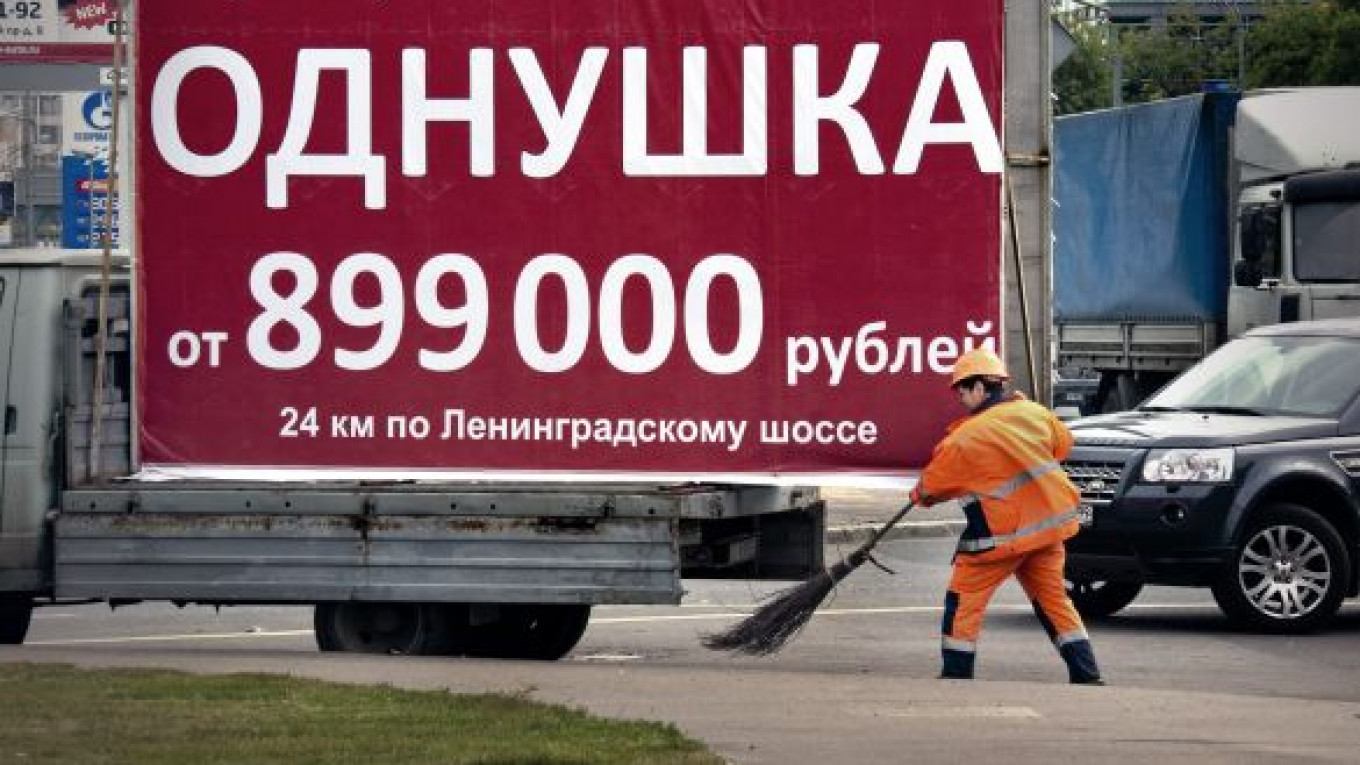Advertisers are running out of space where they can put their signs up in Moscow. City officials, who earlier announced their intention to cut the number of street ads, have now also begun to target ads displayed on parked cars.
The so-called "brand mobiles" are typically older vehicles that are rarely used and are illegally parked without any license plates.
Officials from the southeast district of Moscow are already working to remove all illegally parked brand mobiles from their streets, according to the district's press service. Traffic services are monitoring the territory for such cars and have moved 19 of them to impound lots as of the middle of July.
Moscow's department of mass media and advertising has long tried to remove brand mobiles from the streets, but there is still no law that bans the display of ads on parked transport. According to current regulations, such vehicles can only be removed if they are illegally parked.
The department's campaign against brand mobiles is the latest in the city's efforts to cut down on the number of street advertisements.
The department published a proposal to change the rules for Moscow advertisers on July 9. The document suggests banning advertising on rooftops and construction fences, as well as prohibiting the placement of large ad banners within the Garden Ring.
Proposed changes also include harsher fines for misplacing ads — up to a million rubles ($30,600) for legal entities that break the rules.
"Over the course of three nights, our workers removed 200 Gazels displaying ads," Vladimir Chernikov, head of Moscow's department of mass media and advertising, said last week. "What did this lead to? There became even more of them because the fine is only 5,000 rubles. The rule-breakers are ready to pay this fine and continue as before."
The proposed project will cut the number of ads in Moscow by 20 percent, Kommersant cited the department's spokesman, Vladimir Yakovlev, as saying.
City officials also spoke this month of their plans to prohibit the display of advertisements on flowerbeds, road signs and sidewalks if they interfere with pedestrians.
A Message from The Moscow Times:
Dear readers,
We are facing unprecedented challenges. Russia's Prosecutor General's Office has designated The Moscow Times as an "undesirable" organization, criminalizing our work and putting our staff at risk of prosecution. This follows our earlier unjust labeling as a "foreign agent."
These actions are direct attempts to silence independent journalism in Russia. The authorities claim our work "discredits the decisions of the Russian leadership." We see things differently: we strive to provide accurate, unbiased reporting on Russia.
We, the journalists of The Moscow Times, refuse to be silenced. But to continue our work, we need your help.
Your support, no matter how small, makes a world of difference. If you can, please support us monthly starting from just $2. It's quick to set up, and every contribution makes a significant impact.
By supporting The Moscow Times, you're defending open, independent journalism in the face of repression. Thank you for standing with us.
Remind me later.






